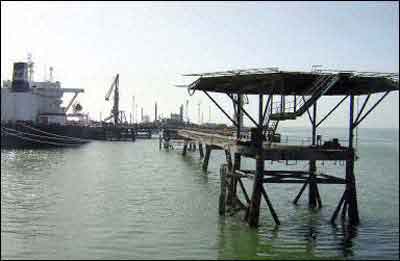
THE oil tanker Artemis slipped its mooring in the Turkish port of Ceyhan on November 18, 2000, carrying 100m barrels of Iraqi crude under the United Nations oil-for-food programme.
It stopped off in Omisalj, a Croatian port on the island of Krk and the oil was put in a storage facility owned by the Croatian petroleum company INA. The diversion has since become a matter of dispute between the UN and the cargos owner, a Swiss commodities firm called Glencore.
The UN said Croatia was the final destination for the shipment and asked Glencore to pay it pegged to European rather than American prices. The difference was $3m and Glencore UK, based in Mayfair, London, sent the UN a cheque to cover that amount. Glencore said last week that Croatia was never meant to be the oils final destination. It said there was a misunderstanding due to the UNs fuzzy rules on Iraq oil-for-food shipments.
All this is of more than academic interest to the City. Next month the UN will report on companies buying oil from Saddam Husseins government. The odds are it will mention Glencore. This will not only focus attention on Glencore, but also drag the FTSE 100 mining company Xstrata into the scandal, because Glencore controls 40% of it.
In financial circles, Glencore is known for its success. The company earned $1.5 billion (£845m) last year, putting it on a par with the Citys largest hedge funds.
Glencore is also known as the company founded by Marc Rich, the commodities trader who fled to Switzerland from the US after being charged for embargo-busting in Iran following the Khomeini revolution. Four years ago, Rich was pardoned by President Bill Clinton on Clintons last day in the White House.
Glencore has been named in connection with irregularities in the oil-for-food programme by the CIA. The US spy agency obtained a register of firms that Iraqs State Oil Marketing Organisation (Somo) said had paid illegal surcharges on oil-for-food deals.
“According to Somo records, one of the most active purchasers of Iraqi crude was a Swiss-based company named Glencore,” the CIA noted. “It paid $3,222,780 in illegal surcharges during the period of the programme.” A CIA spokeswoman said last week that the agency had come to no conclusion on the veracity of Somo records.
The company, for its part, said: “Glencore never paid any surcharges or made any improper payments to Somo or to any other branch of the Iraqi government, or to Iraqi officials.”
New light may be shed next month, when UN investigators, led by former US Federal Reserve Bank chairman Paul Volcker, review Glencore and its activities in Iraq.
On September 7, the Volcker committee published the first part of its report, criticising UN secretary-general Kofi Annan for allowing the oil-for-food programme to become corrupt.
As Saddams regime offered discounts from the official price to the 600 companies authorised to buy its crude, it separately collected surcharges of up to 50 cents a barrel on shipments.
The Volcker committee found that in the course of $64 billion in Iraqi oil-for-food sales “nearly one-third of the surcharge payments were made by cash delivery to various Iraqi embassies abroad”.
Last week Glencore said: “Along with other companies, Glencore was contacted by the Independent Inquiry Committee and fully co-operated with their representatives. Glencore has no expectation one way or the other as to whether it will be mentioned in the report.”
XSTRATA said Glencores links to Iraq would have no negative effect on it.
City analysts said Mick Davis, the Xstrata chief executive appointed by Glencore, might see any problems the Swiss firm encountered as an opportunity to seek a reduction in Glencores stake in the UK miner.
Xstrata jealously guards its independence from Glencore. The terms of the relationship between the two companies are spelt out in a legally binding “relationship agreement”. Glencore chairman Willy Strothotte is Xstratas chairman.
Xstrata has the option of using the Swiss company as a marketing agent.
But only three of the mining companys 12-member board are Glencore appointees. The non-execs, led by former Legal & General investment boss David Rough, are known for their tough-mindedness.
City analysts dont think that news about Glencore in Iraq next month will hit Xstratas share price.
The possibility of criticism of Glencore next month by the Volcker committe “is obviously not good news for Xstrata”, a City analyst said. “But people are more focused on the impact of coal prices on Xstrata.”
When the City looks at the relationship between Glencore and Xstrata overall, opinion divides. Dresdner Kleinwort Benson mining analyst Simon Toyne said: “There is one group of shareholders that says Glencores stake is a risk.
“Glencore might sell its shares and the price would go down. More than offsetting that are the investors who see the Glencore stake as a benefit, because Xstrata can market product through Glencore.”
PIN/THE SUNDAY TIMES
News ID 65970

Your Comment